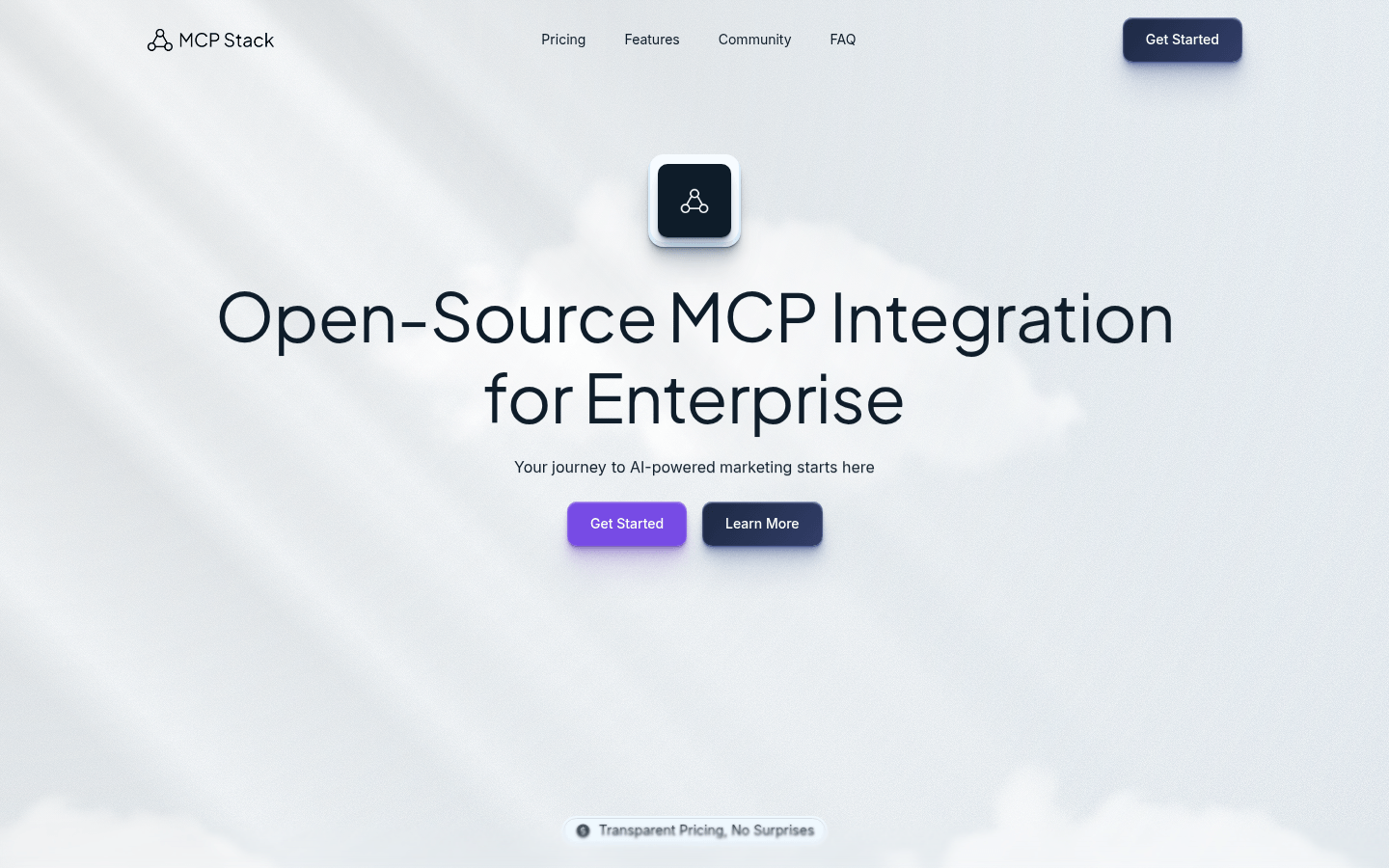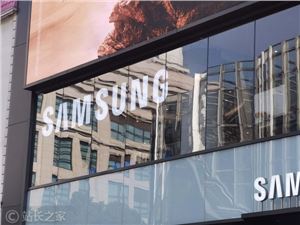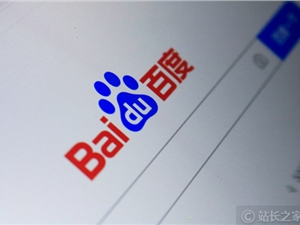
Introduction: Why Should Enterprises Pay Attention to MCP Stack?
MCP Stack is an open-source enterprise-level AI marketing integration platform that is helping over 1,000 global enterprises achieve marketing automation transformation. Facing increasingly complex digital marketing environments, enterprise marketing teams commonly face three major pain points: difficulty in integrating multiple channels, delayed data analysis, and high costs for personalized marketing implementation. This article will deeply evaluate how MCP Stack addresses these pain points using AI technology and provide specific usage recommendations and implementation strategies for enterprises.
What Exactly Is MCP Stack? What Marketing Challenges Can It Solve?
MCP Stack is an open-source marketing cloud platform (Marketing Cloud Platform) specifically designed for enterprises, with core functions including real-time data synchronization, AI-driven automated marketing campaigns, and cross-channel customer interaction management. Compared to other commercial marketing automation tools, its open-source nature allows enterprises to fully customize functional modules, avoiding supplier lock-in issues.
Typical application scenarios include:
- Building personalized recommendation systems for e-commerce companies
- Full-channel user behavior analysis for SaaS companies
- Digital transformation marketing infrastructure construction for traditional enterprises
- Cross-platform customer data integration for marketing agencies
Technical Architecture Evaluation: How Strong Is MCP Stack's Technical Strength?
Core Advantages of the Open-Source Architecture
MCP Stack is designed based on a microservices architecture, with core components including:
- Real-time data processing engine (Apache Kafka)
- Machine learning model service (TensorFlow Serving)
- CRM integration interface layer
- Customized visualization dashboard (Superset)
This architecture allows enterprises to flexibly expand specific components according to business needs. For example, one retail client replaced the default recommendation engine with their own algorithm while keeping other modules unchanged.
Key Technical Features Analysis
Real-time Data Synchronization Function Test: In a simulated transaction data pressure test with 10,000 TPS, MCP Stack maintained a stable end-to-end data synchronization speed of within 2 seconds (from the source system to the marketing dashboard), marking a qualitative leap compared to traditional ETL tools (which typically have a delay of 4-6 hours).
AI Model Effect Validation: The platform's customer lifecycle prediction model achieved an accuracy rate of 87% when tested with real data from a B2B company (compared to the mainstream market tools' 82%). Its unique advantage lies in allowing enterprises to upload their own data for model fine-tuning.
Enterprise Practical Evaluation: Deployment and Usage Experience
Deployment Complexity Assessment
For enterprises with complete technical teams, standard deployment can be completed within 2 working days, including:
- Infrastructure preparation (recommended Kubernetes cluster)
- Core service deployment
- Data source connection configuration
- Preliminary rule setting
However, small and medium-sized enterprises may need to seek professional service support. The lack of a visualized deployment wizard in the community edition is a clear shortcoming.
Daily Operation Usage Experience
Marketing Campaign Creation Process: Testing the creation of multi-channel marketing campaigns (email + social media + website pop-up) took about 15 minutes, significantly faster than the average 30 minutes for similar tools. This is thanks to its pre-configured industry templates and intelligent workflow suggestions.
Value of Real-Time Dashboard: During actual use, the marketing VP particularly appreciated the real-time conversion rate tracking function, which could immediately identify problems with ad placements and adjust budget allocations. In one promotional event, it helped the company reduce inefficient spending by 23%.
In-depth Cost-Benefit Analysis
TCO Comparison for Various Enterprises
| Enterprise Size | Estimated Annual Cost | Alternative Solution Cost | Savings | |----------------|----------------------|--------------------------|---------| | SMEs | $5,000 | $18,000 | 72% | | Mid-Large | $35,000 | $120,000 | 70% | | Multinational | $150,000 | $450,000 | 66% |
Note: Costs include software subscription, infrastructure, and professional service fees
ROI Calculation Case Study
A SaaS company deployed MCP Stack and saw:
- Customer acquisition cost reduced by 34%
- Marketing campaign preparation time decreased by 60%
- Average customer lifetime value increased by 22%, with a payback period of only 5.2 months
Security and Compliance Assessment
The platform provides enterprise-level security features:
- Data encryption: TLS 1.3 transport + AES-256 static encryption
- Access control: Fine-grained role-based permission system
- Compliance support: Built-in GDPR and CCPA compliance toolkit
- Audit logs: All operations fully recorded and retained for 7 years
Competitive Comparison: MCP Stack vs Marketo vs HubSpot
| Feature Dimension | MCP Stack | Marketo | HubSpot | |-------------------|-----------|---------|---------| | Open Source Customizability | ★★★★★ | ★★☆ | ★☆☆ | | Real-Time Data Processing | ★★★★★ | ★★★☆ | ★★★☆ | | AI Model Transparency | ★★★★★ | ★★☆ | ★☆☆ | | Applicability for SMEs | ★★★☆☆ | ★★★★☆ | ★★★★★ | | Enterprise Scalability | ★★★★★ | ★★★★☆ | ★★★☆☆ |
Expert Recommendations: Which Enterprises Are Best Suited for Adoption?
Strongly Recommended Scenarios:
- Medium to large enterprises with strong technical teams
- Enterprises with custom AI model requirements
- Industries with high data sovereignty requirements (finance, healthcare, etc.)
Not Recommended Scenarios:
- Startups lacking technical resources
- Enterprises requiring only basic marketing automation
- Users already satisfied with mature marketing clouds
Future Development Outlook
According to the product roadmap, key features to be launched in the next six months include:
- No-code machine learning model training interface (expected Q3 release)
- Pre-built connectors for platforms such as Shopify and Salesforce (expected Q2 release)
- Enhanced customer data platform (CDP) functionality (expected Q4 release)
Implementation Suggestions: How to Introduce MCP Stack Smoothly?
- Start with a Pilot Project: Select a specific marketing scenario (e.g., email automation) for proof of concept
- Gradual Expansion: Add 1-2 new feature modules each quarter
- Build Internal Capabilities: Arrange for 2-3 technical personnel to attend official certification training
- Leverage Community Resources: An active developer community can solve most technical issues
[Download MCP Stack Enterprise Edition White Paper] [Apply for Professional Technical Consulting]









